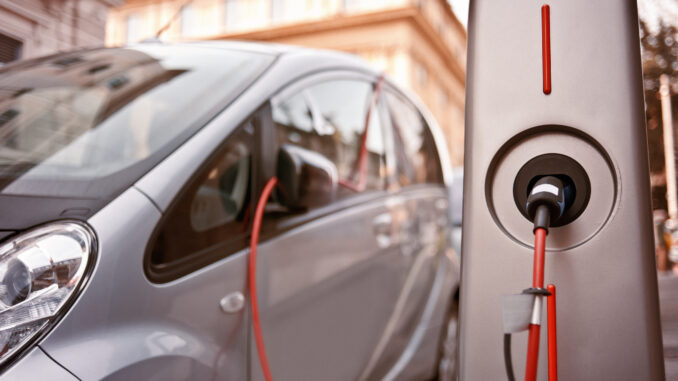
Majorities of NJ-7 Residents From Both Parties Agree on Measures to Incentivize Transition to Clean Energy
Rep. Malinowski Attends “Citizen Panel Forum” Discussing Topic and Findings with Constituents
In a new survey of 476 residents of New Jersey’s 7th Congressional District, majorities of both Republicans and Democrats agree on federal proposals to provide tax incentives for clean energy and energy-saving alternatives; require electric companies to have a minimum portion of their electricity from renewable sources; and institute a carbon fee and rebate plan.
The survey results were released and discussed at a virtual “Citizen Panel Forum” on Thursday that included Congressman Tom Malinowski and dozens of his constituents who took the online survey. A new kind of town hall that seeks to give the public a more effective voice in the policymaking process, Thursday’s Citizen Panel Forum was convened by three nonpartisan organizations: Civic Genius, Voice of the People, and the University of Maryland’s Program for Public Consultation. It is the second Citizen Panel Forum held with Congressman Malinowski and residents of the 7th district.
“I love what you all do during these forums. This has been a really interesting conversation to eavesdrop on and take part in, and I look forward to doing it again,” said Congressman Malinowski.
The survey, conducted by the Program for Public Consultation of the School of Public Policy at the University of Maryland with a representative sample of the district’s residents, found that bipartisan majorities in the district favor a number of proposals under consideration in Congress:
- numerous tax credits to encourage people and companies to adopt clean energy or energy-saving technologies (details on public support for each tax credit)
- support coal workers who are losing their jobs due to the transition to clean energy (NJ-7 overall 77%, Republicans 72%, Democrats 85%)
- require electric companies to have a minimum portion of their electricity come from renewable sources (NJ-7 overall 74%, Republicans 65%, Democrats 90%)
- newly built cars and light trucks, by 2027, would be required to get 20-30% more miles per gallon (NJ-7 overall 73%, Republicans 67%, Democrats 82%)
- companies that produce coal, oil or natural gas would be charged a fee of $35 for each ton of carbon dioxide emitted from the fuel that they burn, and the revenue would be given back to citizens as a monthly rebate check (NJ-7 overall 65%, Republicans 53%, Democrats 80%)
“In standard town hall meetings, members of Congress put forward their views and citizens respond,” said PPC Director Steven Kull. “In a Citizen Panel Forum, the views of a representative sample of citizens are first put forward, citizens can elaborate on their views, the congressional representative responds, and there is a discussion.”
“This survey paints a very different picture than what we see on social media. In New Jersey and across the country, people agree across party lines on a variety of ideas,” said Jillian Youngblood, executive director of Civic Genius. “Citizen Panel Forums lift up a critical message for communities and Members of Congress: Americans agree on plenty and we can craft actionable solutions by listening to the people.”
The proposals that received the highest levels of support were ones that provided credits to encourage people and companies to adopt clean energy or energy-saving technologies. For example, 77% (Republicans 72%, Democrats 88%) favored a proposal providing a tax credit up to 50% of the cost of installing a charging station for electric vehicles that can be used by anyone. Residents of the 7th District also supported tax incentives for energy-saving improvements to residential buildings, such as offering a tax credit of up to $1,500 for installing a new energy-efficient heating or air conditioning system (NJ-7 overall 83%, Republicans 76%, Democrats 91%).
Four hundred seventy-six New Jersey residents from the 7th District participated in the online survey. Respondents went through a process called a ‘policymaking simulation’ that gives users information and seeks to put them in the shoes of a policymaker. Respondents are provided a briefing, presented with pro and con arguments, and then asked to weigh in with their specific recommendations. The content was reviewed in advance by experts on all sides of the issue to assure accuracy and balance.
The views expressed in New Jersey’s 7th District were similar to those in nationwide surveys with samples of more than 2,000 voters provided by Nielsen Scarborough.
Energy and Environment Questionnaire with NJ-7 and U.S. National Frequencies:
https://vop.org/wp-content/uploads/2022/03/EnergyEnvironment-NJ7-Quaire-0322.pdf
Energy and Environment Survey Slides with NJ-7 and U.S. National Results:
https://vop.org/wp-content/uploads/2022/03/CleanEnergy-Slides-NJ7-0322.pdf
Members of the public can go through the same policymaking simulation at:
https://survey.alchemer.com/s3/6794764/NJ7-Clean-Energy

Be the first to comment